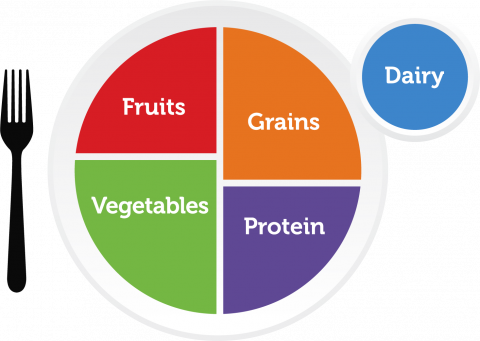
Maintaining a healthy weight is essential for overall well-being and vitality. One of the key components of successful weight management is nutrition. What we eat directly impacts our weight, energy levels, and overall health. By understanding the importance of nutrition in weight management and mastering the art of healthy eating, you can achieve your desired weight and improve your quality of life.
Understanding Weight Management
Weight management refers to the process of achieving and maintaining a healthy weight through a combination of lifestyle choices, including diet, exercise, and behavior modification. Several factors influence weight management, such as genetics, metabolism, environment, and personal habits. However, nutrition plays a crucial role in determining whether you gain, lose, or maintain weight. By consuming a balanced diet that meets your body's nutritional needs, you can support your weight management goals effectively.
Setting Your Goals
Before embarking on a weight management journey, it is essential to set specific and realistic goals. Determining your target weight based on factors such as height, age, and body composition can help you establish a clear vision of what you want to achieve. Setting a timeline for reaching your weight management goals can provide a sense of direction and motivation to stay on track.
Creating a Balanced Nutrition Plan
A balanced nutrition plan is the foundation of successful weight management. Understanding the basics of nutrition, such as macronutrients (carbohydrates, proteins, and fats) and micronutrients (vitamins and minerals), can help you make informed food choices. By incorporating a variety of nutrient-dense foods into your daily meals, you can ensure that your body receives the essential nutrients it needs to function optimally while supporting your weight management goals.

Meal Planning and Preparation
Meal planning is a crucial aspect of weight management and nutrition. By planning your meals ahead of time, you can avoid making impulsive food choices that may not align with your goals. Tips for planning healthy and balanced meals include incorporating a variety of fruits, vegetables, whole grains, lean proteins, and healthy fats. Efficient meal preparation strategies, such as batch cooking and food prepping, can save you time and make it easier to stick to your nutrition plan.
Making Healthy Food Choices
Choosing nutrient-dense foods that provide essential vitamins and minerals is key to promoting weight management. Learning how to control portion sizes and practicing mindful eating can help prevent overeating and support weight loss efforts. When dining out or grocery shopping, making healthier food choices, such as opting for grilled instead of fried foods or choosing water over sugary beverages, can make a significant difference in your overall calorie intake.
Incorporating Physical Activity
In addition to nutrition, physical activity plays a vital role in weight management. Regular exercise not only helps burn calories but also improves cardiovascular health, boosts metabolism, and enhances overall well-being. Finding enjoyable ways to incorporate physical activity into your daily routine, such as walking, jogging, swimming, or strength training, can complement your nutrition plan and accelerate weight loss.

Monitoring Progress
Tracking your food intake and physical activity can provide valuable insights into your progress towards your weight management goals. Tools and techniques such as food journals, fitness apps, and wearable devices can help you monitor your daily habits and make necessary adjustments to your nutrition plan. By tracking your progress consistently, you can stay accountable and identify areas for improvement.
Overcoming Challenges
Weight management and nutrition come with their fair share of challenges, such as cravings, social events, stress eating, and plateaus. Strategies for overcoming these obstacles include practicing mindful eating, seeking support from friends or a health professional, setting realistic expectations, and staying persistent despite setbacks. By staying motivated and committed to your goals, you can overcome challenges and achieve long-term success in weight management.
Conclusion
In conclusion, mastering weight management through nutrition is a journey that requires dedication, knowledge, and perseverance. By setting specific goals, creating a balanced nutrition plan, incorporating physical activity, monitoring progress, and overcoming challenges, you can achieve and maintain a healthy weight successfully. Remember that small, consistent steps towards a healthier lifestyle can lead to significant improvements in your overall well-being. Start your weight management journey today and embrace the benefits of a nutritious diet for a brighter, healthier future.
FAQs
Q: Why is nutrition important for weight management?
A: Nutrition plays a crucial role in weight management by providing the essential nutrients your body needs to function optimally, supporting your weight loss or maintenance goals.
Q: How can meal planning help with weight management?
A: Meal planning helps you make healthier food choices, avoid impulsive eating, and stick to a balanced nutrition plan, ultimately supporting your weight management efforts.
Q: What are some tips for making healthy food choices?
A: Opt for nutrient-dense foods, control portion sizes, practice mindful eating, and choose grilled over fried foods to support weight management goals.
Q: Why is physical activity important in weight management?
A: Regular exercise helps burn calories, improve cardiovascular health, boost metabolism, and enhance overall well-being, complementing your nutrition plan for successful weight management.
Q: How can I monitor my progress in weight management?
A: Use tools like food journals, fitness apps, and wearable devices to track food intake, physical activity, and progress towards your weight management goals, enabling you to make necessary adjustments.


0 Comments